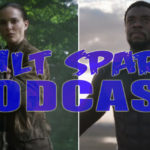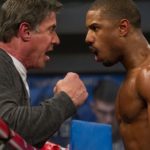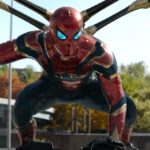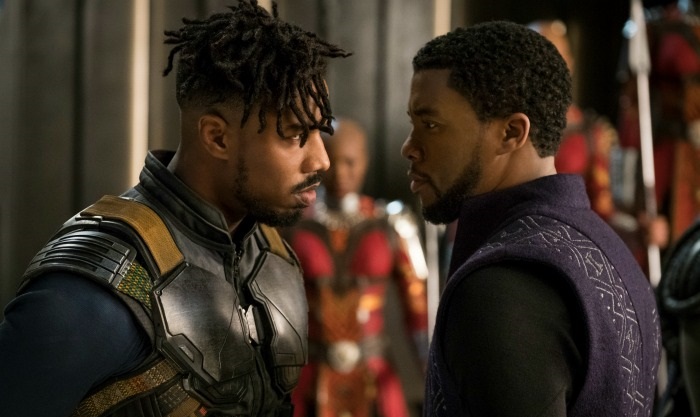
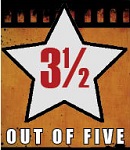
The Friday release of Black Panther is clearly a cultural event. Box-office projections keep climbing and climbing for Marvel Studios' first film featuring a Black superhero as its lead. And it's not just that Chadwick Boseman's African-born hero is being spun off from Captain America: Civil War into his own movie that's making noise; it's the fact that he's surrounded by a bevy of the world's most talented Black actors, all wearing clothes and standing on sets heavily inspired by African culture. It's a big deal, and it should be. It also leaves lame, white guys like me in the awkward place of trying to review the film. There's the concern that any criticisms against the film could be taken as criticisms against its cultural importance. Trust me when I tell you I get why this film must exist and why more like it must follow. Also trust me when I tell you that Black Panther is largely a good movie. It's sturdy like almost all of the Marvel movies are, with gifted filmmakers and performers taking a potentially corny comic-book origin story and turning into something that at times feels epic and inspiring. But …
BUT …
I find myself not overly in love with Black Panther. Grading it strictly as a film and not a movement, it likely falls in Marvel's bottom half for me. There's no shame in that, considering the high standard of quality Marvel Studios films meet as a whole. And maybe that tinge of disappointment has less to do with the movie itself and more to do with the fact that "Marvel fatigue" could be finally setting in with me. I didn't go gaga for Thor: Ragnarok or Guardians of the Galaxy Vol. 2 like so many others did either. Am I finally getting superheroed out? Has a non-stop barrage (three MCU movies a year now!) of CG-heavy battles, quippy characters and post-credit stingers finally blackened my comic-book-loving heart? I'll concede it's possible. But just in case I end up loving Infinity War, it might be best that I still make a case here.
Black Panther picks up after T'Challa (Boseman), prince of the African country of Wakanda, returns to his homeland after his father's death in Civil War. Thanks to its near total control over Vibranium, the strongest metal in the MCU, Wakanda is a technologically advanced super-nation that keeps itself and its tech hidden from the rest of the world. T'Challa is greeted warmly by a cavalcade of friends and family. His younger sister, Shuri (Letitia Wright), is Wakanda's version of James Bond's Q, a crack scientist who's responsible for improving T'Challa's Black Panther costume and all of his fancy toys. Always by his side is Okoye (The Walking Dead's Danai Gurira), a badass warrior who serves as the head of Wakanda's fierce, all-female troop of bodyguards. There's also his mother, Ramonda (Angela Bassett); a monk-like adviser named Zuri (Forest Whitaker); and his ex-lover Nakia (Lupita Nyong'o), a Wakandan spy he still pines for.
Despite already sort of inheriting the mantle of Black Panther in Civil War, T'Challa must still go through the rigmarole of officially being coronated king. It's no easy process in Wakanda, which is made up of several different co-existing tribes. First you have to defeat any challengers from the other tribes in brutal hand-to-hand combat. Then you have to go through the process of eating a special heart-shaped herb and being buried under sand, where you'll be imbued with the powers of the Black Panther and also get to chat with your ancestors. T'Challa fairly quickly moves through the steps, though he soon discovers that serving as king isn't as easy as his father made it seem. For starters, he's instantly hit with the debate over whether to keep Wakanda's innovations a secret or to begin sharing them with the rest of the world. Even worse, Vibrianian smuggler Ulysses Klaue (Andy Serkis, last seen in Avengers: Age of Ultron) is up to no good and has teamed with a young, brash American named Erik Stevens (ominously nicknamed "Killmonger"), who has made it his mission to get to Wakanda and claim what he feels is rightfully his.
I won't reveal any more of the story than that, but know that Black Panther largely traffics in the same sort of Shakespearean family drama that the Thor movies have, with personal revelations about T'Challa's family serving as the major plot points. Director/co-writer Ryan Coogler, the man behind the great Creed and the even greater Fruitvale Station, wisely layers his story with more social commentary than you typically expect from a Marvel film. Black Panther tackles topics like immigration, colonization and race probably as directly as a PG-13 franchise movie made by Disney can. Those touches are most welcome. Unfortunately, while the film proves to be a deeper-thinking experience than its MCU brethren, it falls short of many of the others when it comes to the nuts and bolts of superhero filmmaking.
The action sequences in Black Panther are — dare I say it? — pretty boring. A few great spear moves from Okoye aside, if you've seen the Panther flipping over exploding cars in the commercials, you've basically seen what the film has to offer. A one-on-one fight that takes place between an obviously CG'd waterfall on one side and an even-more-obviously CG'd rock formation filled with Wakandan citizens on the other is moderately entertaining the first time the movie does it; less so the second time when Coogler stages a very similar fight in the exact same location. And the climax, like so many of today's comic-book movies, ends up being a mess of computer-generated nonsense. The movie never makes me forget that the Black Panther in motion is a wholly digitized creation, and Coogler is never able to generate the intensity that he did in Creed's expertly crafted boxing matches.
Another bummer: As good as Boseman was in Civil War, he ends up being less interesting and dynamic that most of Black Panther's supporting players. T'Challa does face internal struggles — living up to his father's legacy and then questioning the veracity of that legacy when certain truths come to light — but honestly they pale next to the storyline given to Killmonger, who stands nicely next to Loki and the Vulture as one of Marvel's strongest villains. Jordan, as expected, blows the doors off the joint. Boseman is just kind of there, doing the noble, conflicted superhero thing while Jordan, Gurira and Nyong'o dazzle around him. As a result, parts of the film end up being very entertaining, but the whole thing also feels a bit off-balanced. Other casting/character gripes: Serkis overacts in a desperate attempt to chew up scenery, and a bland Martin Freeman, also returning from Civil War, is given way too much to do. I would have given anything for his screen time to have gone to Nyong'o.
So, ultimately, this important, mold-breaking movie has a few noticeable flaws. Not enough to kill a recommendation. It's good. It's fine. It's worth seeing if you're a lame, white guy like me. And it's definitely worth seeing if you're a young Black boy or girl who finally gets not just one, but a whole world of heroes who look just like you do. But I wouldn't mind if, in the inevitable Black Panther 2, those heroes get to go on a more impressive adventure.

